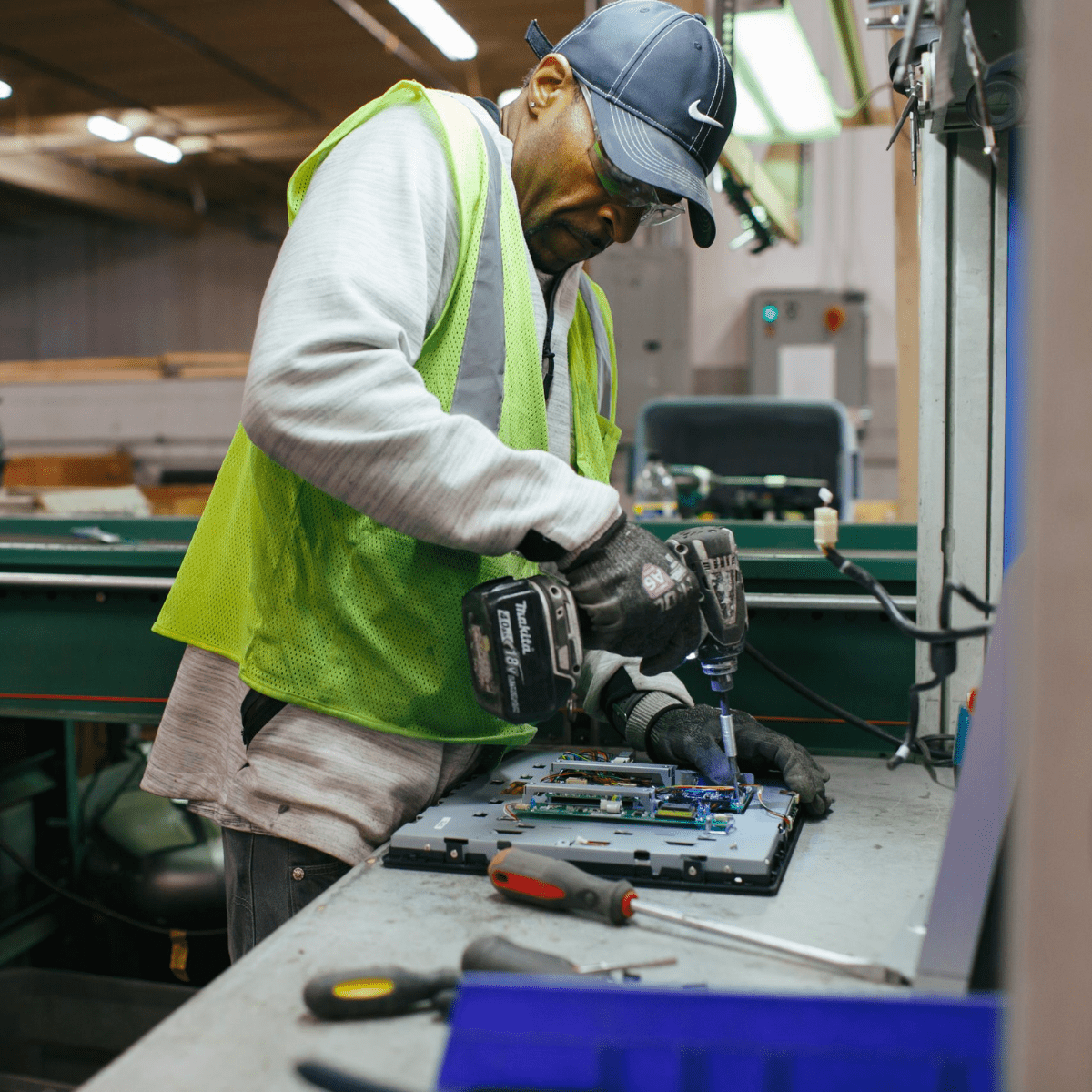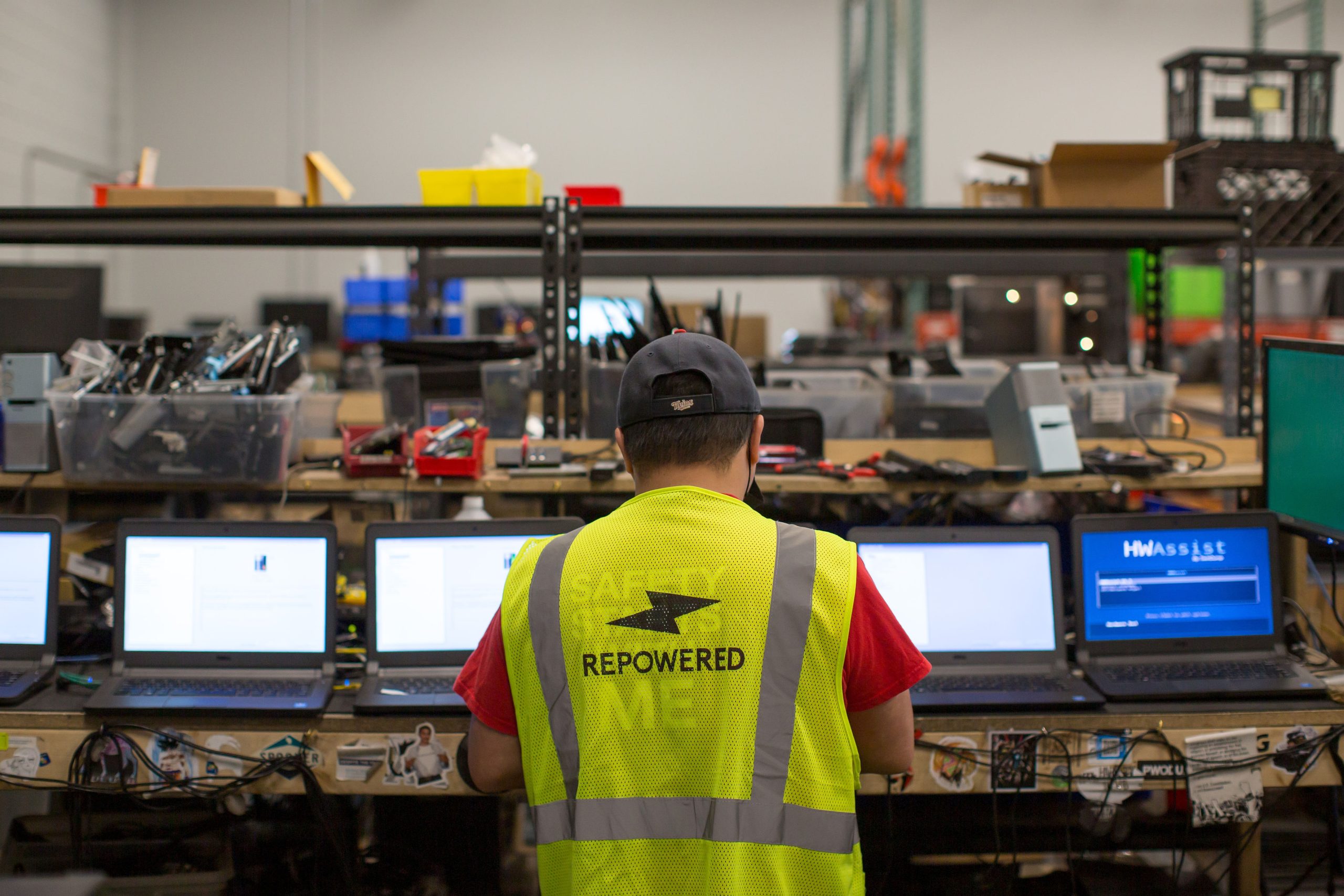
Tech Dump (now Repowered) and PCs for People share a common purpose: keeping electronics out of the waste stream by refurbishing computers for new uses and users. Though they have different secondary goals, both organizations have made a significant impact carrying out this mutual mission. During the onset of Covid, as individuals and families faced economic hardship and an increasing need to stay connected, Tech Dump and PCs for People deployed their recycled technology to help. They partnered, along with Ramsey County, the St. Paul Public Library, and Literacy Minnesota, to deliver more than 900 TechPacks: a refurbished laptop, an internet hot spot, training opportunities, and quick-start guides. Recipients then could seek employment, help their children with homework, and attend telehealth appointments. Through this initiative, the social return on investment for every $1 spent was $2.40, in the form of better wages, access to education, and outcomes for schoolchildren. Add the environmental impact of the organizations’ work, and that’s one powerful punch.
Tech Dump (now Repowered)
St. Paul-based Repowered collects used electronics—35 million pounds of e-waste since its founding in 2011. It recycles and refurbishes a wide range of items, from computers and printers to components and phones. Its parallel objective is to provide job training and reentry to the job market for people with a history of incarceration, addiction, or mental health challenges.

From the start of Repowered’s 18-month training program, its employees are paid to learn. “We believe in fair chances for people, the planet, and technology,” says CEO Amanda LaGrange. “We sit at the intersection of this amazing pool of talent that is looking for employment opportunities, and then e-waste is the fastest-growing waste stream in the world. We have two amazing solutions and can bring them back together through the work we do.”
At Repowered’s Work Readiness program, employees learn to dismantle electronics and refurbish them. They get help with career development plans, performance reviews, and job searches as well as transportation support and/or company-paid therapy. Participants also can earn vocational certifications, making them even more marketable.
Employees repair items, wipe the data, and test them to ensure they’re ready for sale at the organization’s two retail stores, their online webstore, or through wholesale. If an item can’t be refurbished, employees take it apart to the commodity level of steel, plastic, aluminum, copper, gold, and more. The materials are sold to a certified vendor or recycled. Revenue from Repowered’s stores and website are funneled back into the organization’s job training program.
“It’s really impactful from both a digital divide standpoint and getting affordable electronics back out to the community, and from the greenhouse gas side,” LaGrange says. “The longer we can use electronics the better, from a climate standpoint.”
Repowered has been growing rapidly, expanding from 55 employees to 85 from 2018 to 2021. In the same period, operating revenue increased from $3.4 million to $5.9 million, with $8 million projected for 2022. —S.F.
PCs for People
Founded in 1998, PCs for People helps businesses recycle their obsolete computers and other technology by wiping the data and restoring them. The St. Paul-based nonprofit sells refurbished computers at a deep discount to low-income customers and provides them with affordable internet access. PCs for People distributed more than 57,000 computers and enabled 18,000 new homes to connect to the internet last year. Overall in 2021, the organization served 157,000 people and recycled 3.6 million pounds of electronics.
Business development manager Rebecca Duvick often hears from customers that it’s life-changing to get a computer. “If you don’t have a computer and internet, you are not a full citizen of our society,” Duvick says. “That is how we communicate, and Covid has shined a light on that.” Customers, whose average annual income is $16,000, “wouldn’t have resources to do this any other way.”
Income-eligible customers nationwide can order technology from the PCs for People website and receive tech support and training. In the past three years, it has opened new offices in four states, bringing it to a total of nine locations in seven states. This footprint gives the organization better access to businesses’ computers and equipment that’s too expensive to ship, and it allows PCs for People to serve business customers’ multiple locations, Duvick says.
Access to a larger volume of electronics is key, with demand outpacing supply during the pandemic by two to one. PCs for People has waiting lists for computers; demand is also strong for its internet access. The organization started out providing hot spots for customers, but it reached the maximum number of devices available through its provider, so it began working with public and private partners to place local internet antennas on buildings in low-income neighborhoods and provide affordable internet to anyone in a 1-mile radius. In the program’s first year, it has installed 20 antennas in four states.
PCs for People helps businesses meet diversity, equity, and inclusion goals, as well as environmental, societal, and governance objectives, Duvick says. Not only does the organization keep e-waste out of landfills and broaden technology access, but it also employs many people with disabilities. In St. Paul, 32% of its workforce are people with autism.
•••
Back to 2022 Community Impact Awards
Recent News & Articles

Spotify Car Thing: What To Do Once The Device Stops Working

Second Chance Month: Why Fair Chances Are So Important

